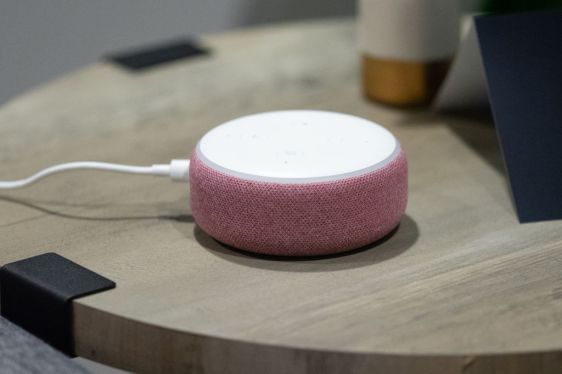Introduction
The voice-first era has officially begun, with smart speakers leading the charge. Led by Amazon’s Alexa, the install base for these devices is expected to reach 200 million units worldwide by 2020. A quarter of Americans over the age of 12 own a smart speaker, and many of those users have multiple devices in their homes. The market penetration of this technology is staggering, but what does it mean for the future of human-computer interaction?
The State of Smart Speakers
Smart speakers have become ubiquitous in our daily lives. From simple voice assistants to complex home automation systems, these devices are changing the way we interact with technology. According to a recent survey, 45% of Americans use smart speakers at least once a day, and 22% use them multiple times a day. The numbers are even higher for younger generations, with 62% of Gen Z respondents using smart speakers regularly.
Opportunities in the Voice-First Era
The rise of smart speakers presents numerous opportunities for innovation and growth. Some potential areas to explore include:
- Voice-Activated Content: With the increasing adoption of smart speakers, there is a growing need for voice-activated content. This can include podcasts, audiobooks, music, and even news updates.
- Smart Home Automation: Smart speakers are already being used to control various aspects of home automation, such as lighting, temperature, and security systems. As the technology advances, we can expect more sophisticated integration with other smart devices.
- Healthcare and Wellness: Voice-activated assistants like Alexa and Google Assistant can be integrated with health and wellness services, enabling users to track their vital signs, schedule appointments, and access medical information.
Challenges in the Voice-First Era
While the opportunities are vast, there are also challenges to consider:
- User Experience: With more devices being connected to our lives, it’s essential to design user experiences that are intuitive, seamless, and enjoyable. This includes creating clear interfaces, providing relevant content, and addressing potential issues like data security.
- Data Security: As with any connected device, there is a risk of data breaches and cyber attacks. It’s crucial for developers to prioritize security measures and ensure the confidentiality and integrity of user data.
- Standards and Interoperability: With multiple devices and platforms competing in the market, it can be challenging to achieve seamless integration and standardization. This requires collaboration among industry leaders to develop common protocols and guidelines.
Industry Perspectives
We spoke with several experts from the venture capital and tech industries to gain their insights on the voice-first era:
- Amazon Alexa Fund: "At Amazon, we’re committed to empowering developers to create innovative solutions that enhance user experiences. We believe that the voice-first era is only just beginning, and we’re excited to support entrepreneurs who are shaping this exciting landscape."
- BetaWorks: "We’ve been investing in companies that leverage voice technology to improve customer engagement and retention. With the increasing adoption of smart speakers, we see tremendous potential for growth in areas like voice-activated marketing and customer service."
- Pace Capital: "At Pace, we’re enthusiastic about the emergence of voice as a primary interface with which users query and consume information. We believe that AirPods may be the next platform on top of which many applications and value are built."
Conclusion
The rise of smart speakers marks an exciting new chapter in human-computer interaction. As this technology continues to evolve, it’s essential for developers, entrepreneurs, and industry leaders to collaborate and innovate. By addressing challenges like user experience, data security, and standards, we can unlock the full potential of voice-activated devices and create a more seamless, intuitive, and enjoyable experience for users.
References
- [1] Eric Cohen-Peckham (2020). "The Rise of Voice: How Smart Speakers are Changing Human-Computer Interaction."
- [2] Statista (2020). "Smart Speaker Adoption in the United States 2020"
- [3] Amazon Alexa Fund (2020). "Empowering Developers to Create Innovative Solutions for Voice-Activated Devices"
This article has been written to provide a comprehensive overview of the voice-first era, its opportunities and challenges, and industry perspectives on this emerging technology. By exploring these topics in-depth, we aim to inspire innovation and growth in the field of human-computer interaction.



